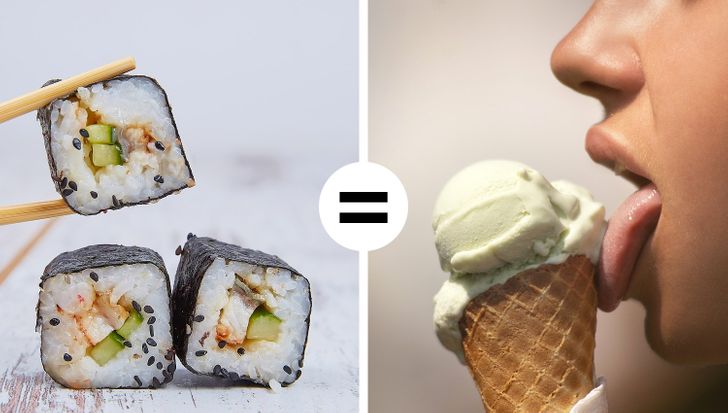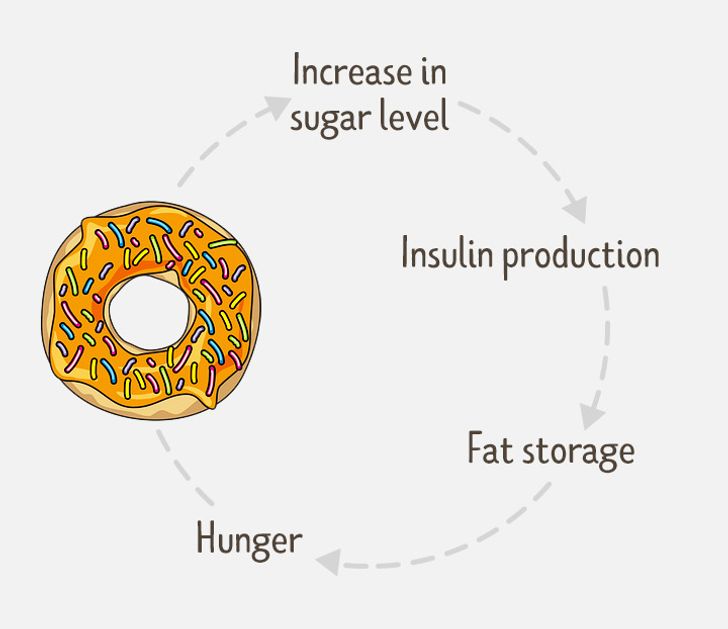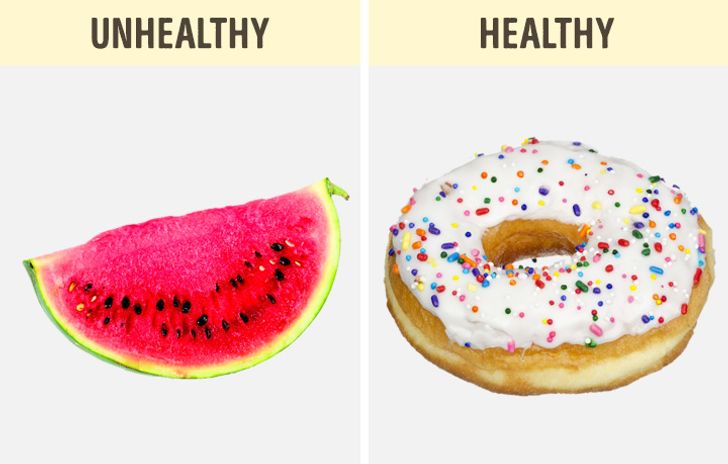When trying to lose weight, it’s best to base your decisions on scientific facts, not fad diets. We want to talk about a large study by Israeli scientists who found that there are no universal principles for healthy diets, and for some people, tomatoes can be more harmful than ice cream.
Eran Elinav and Eran Segal, from the Weizmann Institute of Sciences, processed information from around 800 volunteers between the ages of 18 and 70. The study participants used a special app to inform the researchers about their lifestyle, and each had glucose meters to constantly monitor their blood sugar level. And the results surprised the whole world.
We share with you several facts that will help you understand what foods you should eat to stay healthy and not gain weight.
Why There’s No Such Thing as “Healthy” Food
The Reaction Of The Body To Food Depends On The Body, Not On The Food

It turns out that some people’s bodies react to unusual foods with a spike in sugar levels. For example, sushi, which seems completely harmless, increases sugar, which is equivalent to eating ice cream. And watermelon causes a greater increase in blood sugar than chocolate.
One of the participants in the experiment said that she had been trying to lose weight for many years. She tried different diets until she realized that the reason for her high sugar levels was her favorite tomatoes.
In other words, different people can have a completely different reactions to the same food and this can depend on several factors:
The microbiome of the individual. This is a collection of 100 trillion microbes that live inside the body. Different people have different microbiomes and they influence our response to food.
Physical activity. This requires energy that generally reaches the muscles in the form of sugar from the liver. People who are more physically active have cells that are more susceptible to glucose, so their blood sugar is generally lower than people who have a sedentary lifestyle.
Stress level Stress causes our body to produce adrenaline and cortisol, which stimulate the increase in blood sugar levels.
A High Glucose Level Stimulates The Body To Store Fat And Causes Hunger

When we eat foods that are not good for us, the blood sugar level rises, causing the pancreas to produce more insulin. Cells respond to this by conserving glucose in the form of glycogen and fat, which leads to a rapid drop in blood sugar levels and hunger.
And what are we going to do? We eat, which starts the vicious cycle of “fat storage and starvation” that ultimately results in weight gain.
These are the most popular signs of high blood sugar:
- feeling hungry often;
- feeling thirsty;
- dry mouth;
- getting tired quickly;
- frequent urination, even at night;
- stomach problems;
- delayed healing.
Eating Foods That Cause A Quick Rise In Glucose Levels Leads To The Development Of Diabetes And Cardiovascular Diseases

According to the World Health Organization, there is an epidemic of diabetes in the modern world, a disease caused by problems with insulin production. The number of cardiovascular diseases is increasing, especially those related to hyperglycemia (high blood sugar). These diseases are one of the main causes of death in the world.
This research has also shown that general healthy diet recommendations can be ineffective for an individual. That is why knowing which foods are good and which are not can be a reliable way to control your sugar levels to prevent these diseases.
How Do You Know What Food You Need?
Here’s what the scientists recommend:
Choose foods that do not cause a sudden spike in sugar levels. Buy a glucose meter and check your sugar levels before and after eating. This will allow you to understand how your body reacts to different foods.
Limit your portions. The rise in sugar levels may be due not to the food itself, but to the quantity. Drink more water with meals: reduces sugar levels.
Experiment with carbohydrates: For example, instead of sugar or honey, try adding raisins to oatmeal and replace pasta and rice with beans.
Don’t use artificial sweeteners because they cause sugar spikes in most people. Don’t buy fat-free dairy and don’t be afraid of fatty foods – cheese, butter, and eggs really help lower blood sugar levels.
Consult a nutritionist who will inform you about the individual characteristics of your body and help you create a diet plan.
What food principles do you believe in? Let us know in the comment section below!
Preview photo credit Pixabay, Pixabay


